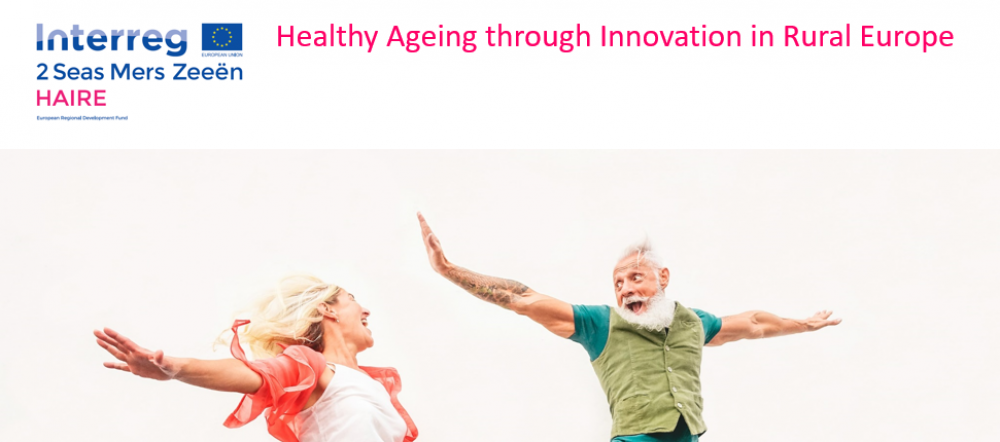Thanks to our colleagues in Laakdal for sending us a news article which was published after a large stakeholder event discussing the co-creation and prioritisation of local social innovations. Below is a translation into English of the article by Annelies Frederickx published on Wednesday 20th October, 2021. You can read the original article at source here.

The seniors of Laakdal debate four themes: mobility, leisure, caring for tomorrow and communication — © AF
Laakdal is the first municipality to undertake the European participation project HAIRE.
HAIRE’s pilot site in Laakdal involves a partnership between the local government and Welzijnszorg Kempen, an organisation specialising in the health and wellbeing of the most vulnerable in society, including older people. In Laakdal, 28% of the population is senior, so the municipality is ideally suited to explore the possibilities of co-creation with older people. There is also interest from adjacent areas, Mol and Herselt, in working with HAIRE.

Katrien Serroyen of Welzijnszone Kempen takes an active part in the debate. — © AF
The first part of the started in September 2020 with a neighbourhood analysis (a mapping of resources with residents in the neighbourhood; see this earlier blog post for an overview of what this entailed in Feock, UK, one of our other pilot sites.) Volunteers were then recruited to carry out “Guided Conversations.” Sixteen volunteers set out from the community to interview 71 older people. The respondents were 60, 70, 80 and 90 years old and they lived all over Laakdal. The Guided Conversations contain place- and person-related questions, as well as a section on personal empowerment. The results yielded a long list of more than a hundred action points. In consultation with the municipal council, the project team has filtered four priorities from this: mobility, leisure, care for tomorrow (dementia and early care planning) and communication. The older people surveyed all expressed the wish to rename the HAIRE project ‘A good old age in Laakdal’, as the English acronym did not resonate as strongly.

Sofie Schepers is an expert community-oriented care provider in Laakdal. — © AF
During the kick-off in the local meeting centre, some thirty people over sixty set to work on the four priority themes. In each domain, they identified the most important difficulties and looked for possible solutions. Rosa Wilms took an active part in the debate as she has been involved from the start: “When I read the call in the municipal information sheet, I immediately applied to be a volunteer”, Rosa Wilms reveals. “I was alone and this seemed to be an ideal pastime for me. I like to chat and through the project I was also able to make new contacts. I had a total of ten conversations, four online and six at home. They were all intense but wonderful conversations.”

Rosa Wilms has been involved in every phase of the project. — © AF
“My chats showed that older people in Laakdal struggle with a lack of respect from neighbours, young people and from traffic”, Rosa Wilms adds. “Of course there’s not much a municipal council can do about that; we all have to work on that together. I completely agree with the four chosen themes. Choices must of course be made and it seems realistic to me that the municipal council can achieve things in those four domains. The most important thing for me, however, is that we are being listened to.”

Difficult points to resolve or improve were noted for each theme. — © AF
Sofie Schepers, who leads the project for the municipal government, had good news for the participants. “The municipality is buying a van and it will be available to all older people in Laakdal. It can be used to provide transport to activities in all boroughs and we are also looking at the possibility of, for example, providing transport to the local market. The aim to provide ‘A good old age in Laakdal’ has only just started, but we are well on our way.”
